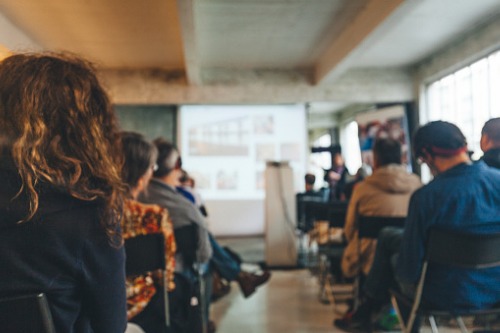
by Dr. Robert Kay
Our education system is failing our children, but not for the reasons usually discussed. Many commentators point to falling grades as evidence of education’s decline, but this narrow view assumes grades are the best measure of a system and misses the point entirely. The real concern is that the education system is geared towards preparing our kids for last century – not the century to come.
Australian students are staring into a future that will be unlike anything that has come before it. The nature of employment will be radically disrupted by the fourth Industrial Revolution, and we don’t have long to prepare – with many futurists suggesting this disruption will take effect in the mid-2020s. Our education system was designed more or less to serve the first Industrial Revolution and has only experienced incremental change since then.
For most parents, the concept of schooling involves a teacher standing before a class, transmitting information from a pre-set curriculum, which students must then remember for long enough to regurgitate and pass an exam. Let’s call this “Education 1.0”.
As David Gonski’s review of Australian education found, too few students reach their potential in this cookie-cutter industrial-era model. The Gonski report, and other expensive reform efforts, reinforce the need for what we might call “Education 2.0”. This is characterised by more student-centred and problem-based approaches to learning. Education policy documents around the world have been based on these approaches for the best part of 30 years, often under the title of “21st Century Learning”.
Interestingly, a growing number of commentaries in the media claim these so-called ‘constructivist’ approaches to education haven’t worked, often citing falling grades as evidence.
The reality is more complex.
Over the past decade our researchers have sat in roughly 1000 classrooms and observed the reality of teaching practice. Evidence from these observations suggests that rather than not working, Education 2.0 practices are largely absent from classrooms. This is despite the hundreds of millions of dollars spent attempting to shift the system towards Education 2.0. Whilst pockets of this practice can be found scattered across the Australian school system, it remains the exception not the rule. The paradigm change that was supposed to be Education 2.0 has not occurred.
To meet the needs of our future, however, Education 2.0 won’t be enough.
Enter “Education 3.0”. This model has many similar characteristics in terms of educational philosophy to 2.0, in that knowledge does not come in neat, isolated factoids, but the key difference is that learning extends beyond traditional school boundaries and into the real world.
The idea is that students learn experientially in a setting that more closely resembles the real world, because it is the real world. It might be a laboratory, an office building, an open field or an area of importance to an indigenous community. The problems are not dumbed down abstractions or simulations, they are real. The stakeholders students interact with are real, and the experiences they draw from were gained in the real-world.
What Education 3.0 recognises is that children know when the task they have been set is nothing more than artificial hoop jumping, and so their engagement is commensurate with the meaningfulness of the task. With Education 3.0 they move from surface learning – enough to pass exams – to deep learning, enabling them to adapt to rapidly changing circumstances.
Creating a system fit for the fourth Industrial Revolution will not be achieved by doing more of the same.
Evidence from the past 30 years of attempted change suggests that if change will come to the system, it will come from the outside through collaboration with industry. Industry, in all its forms, will need to step up and engage far more than it currently does. Schools will need to collaborate with industry and community, not just for excursions, but for problems to solve. Importantly, parents will need to put their own prejudices aside – and these shifts need to happen quickly.
The fourth Industrial Revolution is upon us, and the previous three pale by comparison. Our grandchildren, grappling with the world they inherit won’t have time for rote recitation, and report cards studded with “A’s” will do little to prepare them when those tests were designed for a world that no longer exists.
Dr. Robert Kay is co-founder and executive director of Incept Labs, an Australian education and innovation research consultancy


